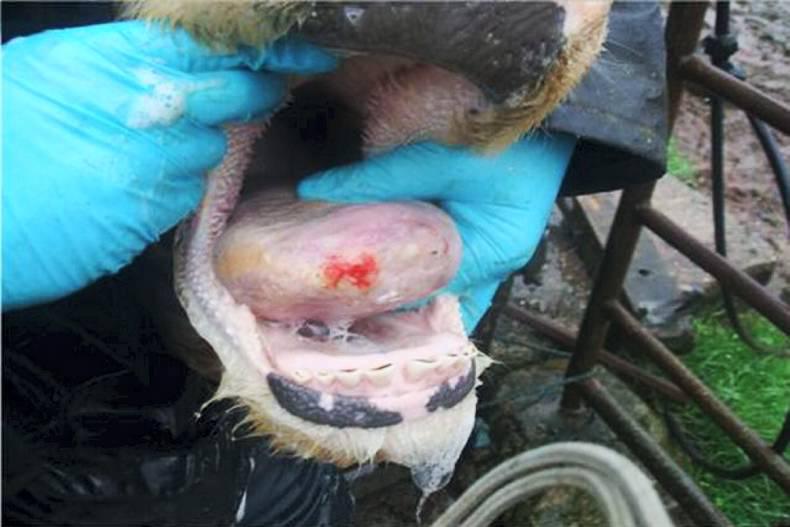Timber tongue is a disease of cattle caused by bacteria that leads to the tongue becoming swollen, rigid and tough like a piece of wood.
Cause
Timber tongue is caused by the bacterium actinobacillus ligniersii. These bacteria are found in the oral cavity of normal cattle, as well as in soil, but they only cause disease following trauma to the tongue. This allows the bacteria to gain entry to the underlying muscle.
The causes of such trauma include licking of rough metallic feed troughs, accidental ingestion of wire and other sharp metallic objects, licking of stones and the ingestion of rough feed. In young cattle, cuts on the tongue may also arise due to sharp or loose teeth.
Symptoms
As the name suggests, the bacteria cause a severe, marked inflammatory response in the muscle of the tongue which becomes rigid and tough like a piece of wood essentially. Timber tongue is a progressive condition and it can take one to three weeks for the hardening of the tongue to fully take place.

During this time the animal will begin to have difficulty chewing and swallowing and will look empty and lose weight as a result. As the tongue becomes harder and swallowing becomes more difficult and painful, there will be obvious drooling of saliva from the mouth. On opening the mouth and feeling the tongue, the hardness can easily be felt and often a yellowish discolouration to the surface of the tongue can be seen. Occasionally, only the back of the tongue is affected and so this should be checked in suspect cases. From a health and safety point of view this should not be attempted without a proper mouth gag, to ensure you do not get your hand or fingers bitten/crushed.
Treatment
Treatment involves the daily injection of antibiotics for up to a week in severe cases. Anti-inflammatories are indicated in most cases. If animals are dehydrated or acidotic, oral fluids will also be needed. As with all infections, the earlier that veterinary treatment is initiated, the quicker that recovery will take place. Failure to identify infection and initiate treatment will lead to a poor prognosis.
Prevention and control
Timber tongue can be prevented by ensuring that feed troughs and water troughs are kept in good repair and any sharp edges smoothed over. If animals are excessively licking the ground or stones, this may indicate the presence of a parasite burden or perhaps a mineral deficiency which should be investigated.






 This is a subscriber-only article
This is a subscriber-only article










SHARING OPTIONS: